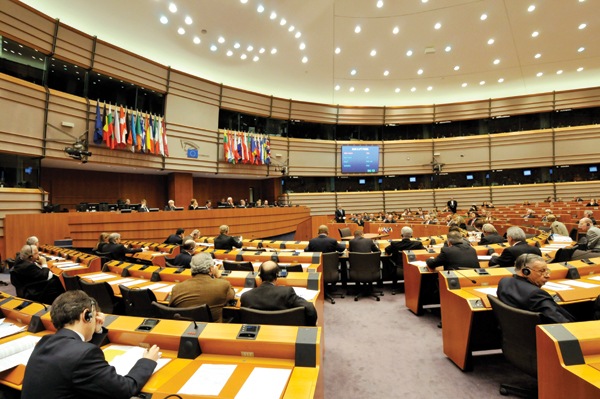Campaigners call for web freedom
The danger posed to human rights by internet censorship was the main topic under discussion by the Parliament’s Human Rights Sub-Committee on 2 June in Brussels. Finnish politician Heidi Hautala chairs the sub-committee.
In a committee room in the European Parliament building – surrounded by 16 booths, each holding up to three translators – the sub-committee first heard from a representative of Global Solutions, a company who were commissioned to undertake an investigation of human rights abuses on the internet.
Representatives from Nokia, Siemens and Google were in attendance.
Examples of countries where the internet has been altered to the detriment of the citizens included Burma, where the entire internet infrastructure was shut down by the Burmese government in 2007 to prevent communication with the rest of the world about its violent crackdown on protesters. In Iran, the government blocked mobile phone and internet use during riots after alleged rigging of the June 2009 election. And, in China, where the censorship is rife, people can end up in prison for voicing their opinion online.
Members were urged to use their influence to stop internet abuses. “What the EU does domestically is important in shaping its influence on the world stage,” the Global Solutions representative said, adding that the EU should use foreign diplomacy more effectively and that digital communications should be flagged up in bilateral agreements. Business, he argued, “has a big role to play” in making the internet more accessible across the globe.
Shiyu Zhou is Deputy Director of the Global Internet Freedom Consortium – a small team of Chinese-American engineers who came together following the Chinese Communist Party’s persecution of their families and other followers of the Falun Gong spiritual practice.
In China “tens of thousands” of cyber police engage in monitoring and surveillance of internet users, Zhou remarked. He accused western businesses of helping to develop China’s ‘golden shield’, which blocks many sites and filters out topics deemed too politically sensitive by the ruling party.
His consortium has developed a series of software programmes that provide users with encrypted connections to secure proxy servers around the world. He explained that they constantly switch the IP addresses of their servers at around 10,000 times per hour to make it impossible for censors to block effectively.
During the Iranian riots their traffic increased by 600 per cent.
Urging the sub-committee to treat the freedom of internet communication in “closed societies” as a priority, Zhou concluded: “Imagine how much safer the world could be, how much better we could understand each other, and how quickly authoritarianism and repression would collapse when confronted with an engaged, educated and free citizenry.”






